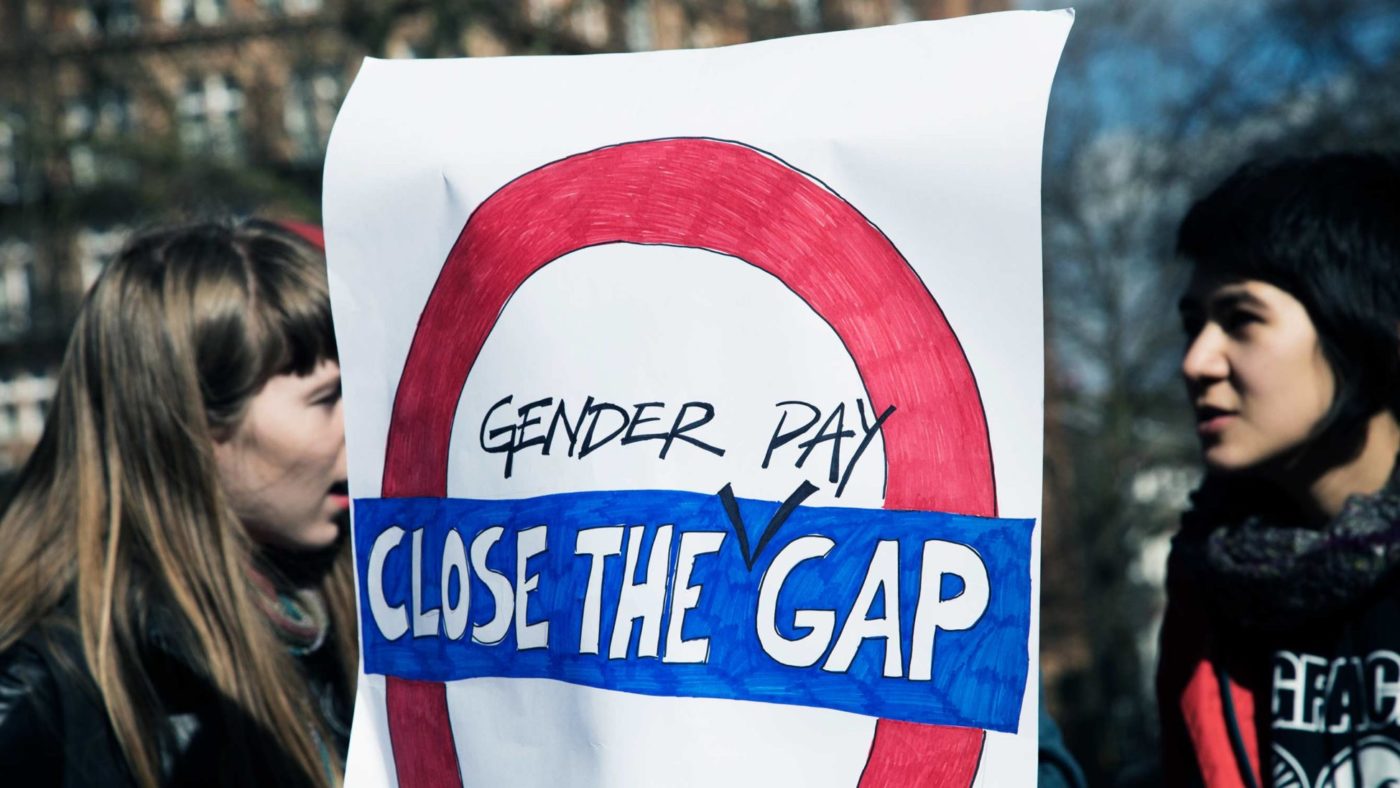The second year’s reporting of gender pay gap data for large organisations was published last week and it makes for shocking reading. EasyJet has a mean hourly pay gap of 54.1%. Virgin Atlantic’s mean pay gap has increased from 57.9 per cent in 2017 to 58.9 per cent in 2018. The NHS reported an overall gender pay gap of 23 per cent, with GPs’ pay gap standing at 33 per cent.
Except that isn’t exactly true. The headline figures are not representative of the situation on the ground and contribute to an increasingly misleading narrative around gender discrimination in the UK.
The Office for National Statistics places the pay gap for full-time workers at 8.6 per cent in favour of men, and the pay gap for part-time workers sits at -4.4 per cent in favour of women, so how is it that organisational reporting throws up such big differences? A new briefing from the IEA’s Kate Andrews breaks down the figures behind the headlines and highlights just how misleading pay gap reporting can be.
The government-mandated reporting doesn’t break down earnings by characteristics we know can affect an individual’s pay. There is no breakdown by background, education or degree level, age, or years of experience. The measures don’t differentiate between full and part-time workers and, most shockingly of all, they don’t even break down different roles. Measuring an organisation’s pay gap while making no allowances for the wide range of different roles within that company tells us nothing about how much men and women are paid for comparable jobs. But these misleading figures are still taken as fact.
Take EasyJet and their reported 54.1 per cent mean hourly pay gap for 2018. What the figures do not show us is that most EasyJet employees are cabin crew, with 71 per cent of those being women, on a salary under £24,000. Just over a quarter of EasyJet staff are pilots, on an average salary of £98,000, and only 5 per cent of those pilots are female (roughly the same as the percentage of female pilots worldwide).
Breaking down the figures in this way enables us to see that EasyJet’s apparent gender pay gap isn’t the result of workplace discrimination, it is because men and women are taking on different roles within the organisation and receive different salaries as a result. (It should be noted that, long before pay gap reporting was mandated, EasyJet voluntarily started an initiative to recruit more female pilots – indeed it’s hard to see what more the company could be doing to give a boost to women.)
The apparent NHS pay gap is difficult to comprehend, given the majority of salaried staff have their pay calculated using an inflexible national pay scale. This all but eliminates the question of gender discrimination in wage-setting, as managers have very limited scope to influence an employee’s salary. Where there are discrepancies they are most likely due to the employee’s position or the number of hours worked. Evidence shows female GPs – who outnumber their male counterparts within the NHS – are more likely to work part-time and, unsurprisingly, earn less as a result.
Despite all the issues which pointing to the ineffectiveness of the reporting, large organisations are legally required to publish these figures and face huge reputational damage, with threats of boycotts and increasing talk of fines.
Worse still, the reporting creates perverse incentives for companies looking to hire more women. Because the figures are published by percentile, companies may be reluctant to hire more women into junior positions for fear of increasing their pay gap, therefore denying women the opportunity to secure entry level jobs in their chosen profession with the chance to develop their careers.
The way the gender pay gap figures are calculated and reported leads many to confuse the gender pay gap with equal pay. Equal pay for equal work is a legal requirement and has been so in the UK since parliament passed the Equal Pay Act in 1970. The gender pay gap emerges across time and can largely be explained by individual decisions men and women take. Time off to raise children or care for elderly relatives can affect a person’s earning potential across their lifetime, as can the type of role and sector a person chooses to work in.
Separate figures out today show female graduates expect their first salary to be £4,000 less than what male graduates hope to earn. Misreporting the gender pay gap data is contributing to a negative narrative where women expect to face discrimination and lower wages in the work place as a matter of certainty. But, in 2019, this narrative couldn’t be further from the truth.
If the government wants to tackle genuine issues facing women in society it needs to start by producing accurate information on the current situation.
CapX depends on the generosity of its readers. If you value what we do, please consider making a donation.


